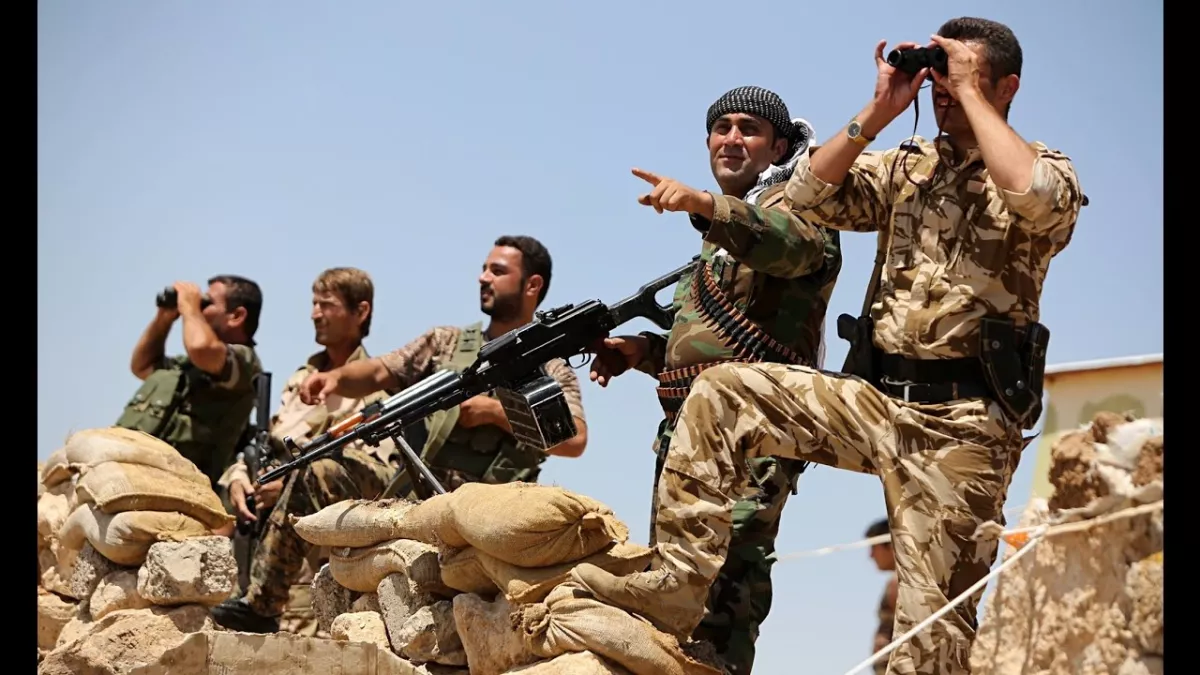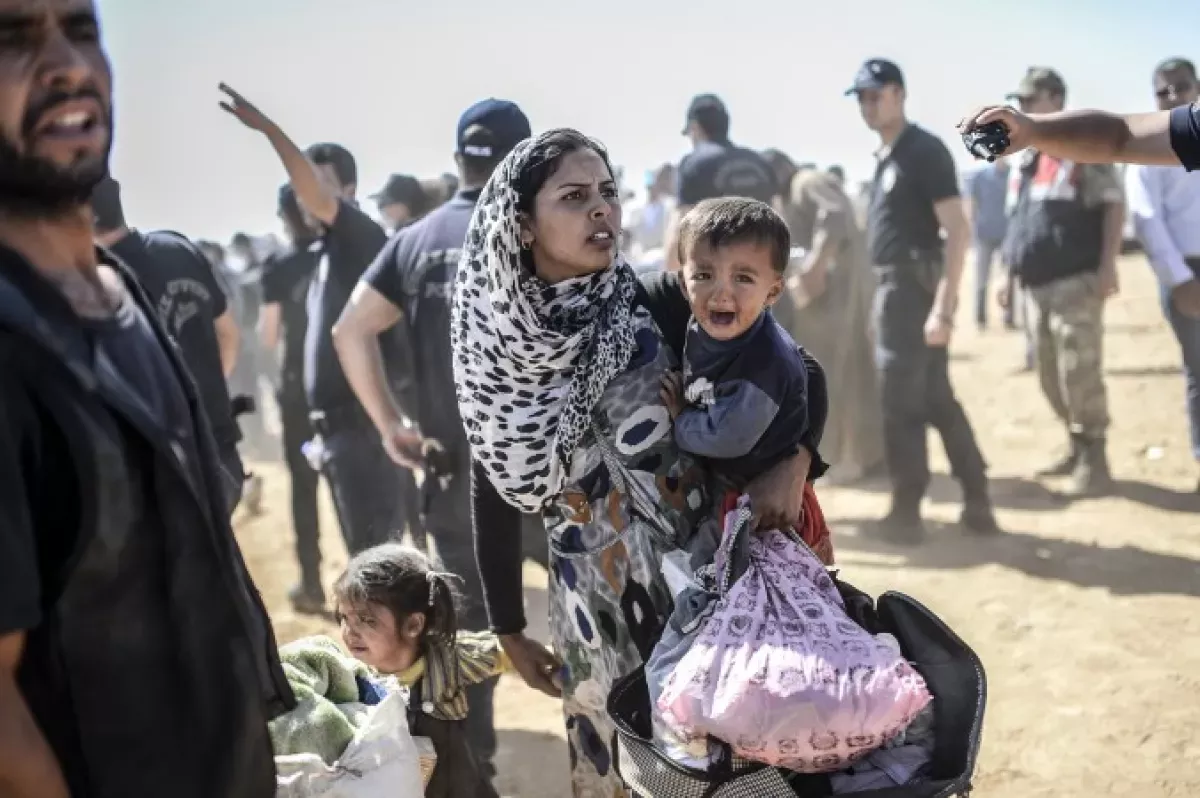Syria: Zone of rivalry between Israel and Türkiye Caliber.Az international spotlight
Türkiye and Israel have completely different visions for what Syria should look like in the future. These visions not only fail to align but in many ways directly contradict each other.
What does Ankara want from Syria?
First, Ankara seeks to eliminate the Kurdish autonomous administration. Today, nearly one-third of Syrian territory—in its northern and eastern regions—is controlled by structures affiliated with the Democratic Union Party and the Syrian Democratic Forces (SDF).
Kurdish units play a key role in these formations, while party officials from the PKK (Kurdistan Workers’ Party) oversee all structures, both military and civilian. In Türkiye, the PKK is officially recognised as a terrorist organisation, and the existence of a de facto autonomous entity on the border controlled by it is seen by Ankara as a direct threat. The PKK–SDF control the most fertile lands in northern Syria, have access to key oil fields, and maintain control over the country’s most important energy hub—the dam and the largest power station on the Euphrates.

For Türkiye, the current situation is unacceptable. Essentially, the PKK—hostile to Ankara—has managed to establish a quasi-state on Syrian territory, even though it lacks international recognition. Formally, the PKK–SDF do not demand the independence of a “Syrian Kurdistan,” instead declaring their aim is the federalisation of Syria. Yet they intend to retain control over the armed forces (SDF), oil and gas resources, energy infrastructure, and the administrative apparatus governed by the PKK.
Second, Türkiye seeks regional leadership. Ankara views the collapse of Bashar al-Assad’s regime—which relied on close ties with Iran—and the rise to power of a Türkiye-friendly HTS group led by Ahmed al-Sharaa in Syria as a strategic opportunity. For Ankara, the chance to act as the patron of a new Syrian government would strengthen Türkiye’s levers of influence in the Arab and Islamic worlds. This would open additional avenues for demonstrating military, economic, and diplomatic supremacy, enabling Türkiye to claim the status of a global power rather than merely a regional player.
Third, a significant factor shaping Türkiye’s position remains its commitment to political Sunni Islam and the concept of neo-Ottomanism. This involves expanding Turkish influence across the Islamic world and aiming to turn the country into a leading centre of Muslim civilisation, grounded in the legacy of the Ottoman Empire. For Türkiye’s ruling elite, this is important not only in terms of foreign policy but also domestically: the current leadership presents itself as the heir to the traditions of a great Muslim power. The new authorities in Syria, aligned with political Sunni Islam, are objectively interested in military and political partnership with Türkiye—both for ideological reasons and to ensure the security and reconstruction of the country after years of war.

Fourth, a significant motive for Ankara is the issue of Syrian refugees. Today, around 3.5 million Syrians live in Türkiye, and their presence has caused serious dissatisfaction among Turkish citizens. Stabilising Syria and establishing a partnership with a new government in Damascus would allow at least some of these people to return home. This would reduce social tension within Türkiye and provide the authorities with a strong argument for the success of their foreign policy approach.
What does Israel want from Syria?
Israeli interests in Syria are described by Eran Lerman, an analyst at the Jerusalem Institute for Strategy and Security. According to him, Israel’s primary goal is to prevent Syria from becoming a springboard for Turkish military presence.
Rivalling Türkiye for regional influence, Israel seeks to avoid a scenario in which the Turkish army—the second largest in NATO—consolidates its position in Syria. In this context, Tel Aviv sees the creation of a buffer zone as a key element of its strategy. Ongoing airstrikes on sites within Syrian territory, aimed at destroying remnants of strategic military assets inherited from the Assad regime, are part of this approach. Equally important is another aspect: Israel aims to expand the zone of its military control in southern Syria.
Lerman emphasises that Israel is prepared to support forces that view it as a strategic ally. Within existing geographic and military limitations, Israel can provide assistance to Kurdish formations and advocate for their interests on the international stage, including by leveraging its influence on the Trump administration.
Like the Druze, the Kurds envision Syria’s future as a decentralised and multi-layered space, where no single regional power holds a monopoly of influence. This vision aligns closely with Israel’s interests. Syria is home to several million Kurds, around 800,000 Druze, and approximately 2 million Alawites, while the majority of the population consists of Arab Sunnis. The Kurds are also predominantly Sunni, but their political leadership—linked to the PKK—is dominated by a national identity and a drive for autonomy from Damascus.
In other words, Israel has no interest in allowing Ankara to turn Syria into a military base with the support of Ahmed al-Sharaa’s government. Tel Aviv seeks the federalisation of Syria, aiming to divide it de facto into several ethnic enclaves: Sunni, Kurdish, Druze, and Alawite.
By assisting the Druze, and potentially the Kurds in the future, Israel hopes to limit the expansion of Turkish influence. At the same time, the factor of confrontation with Syria remains crucial: for decades, the country has been a direct adversary. Israel continues to control the annexed Golan Heights, and this issue remains a matter of principle.
Equally important is Israel’s ambition to reshape the entire region, strengthening its own influence. Israel actively opposes Iran, seeking regime change, and carries out strikes on targets in Gaza, Lebanon, Yemen, Syria, and even Qatar, despite the latter being an ally of both the United States and Türkiye. U.S. support, including the transfer of significant amounts of advanced weaponry such as F-35 fighter jets, has sharply boosted Israel’s ambitions. In this context, the growing political, economic, and military power of Türkiye is perceived by Israel as a serious challenge.

According to Reuters, Israel does not limit itself to statements: it pays salaries to Druze militias and is working to form a unified Druze army. Additionally, Israel’s Foreign Minister Gideon Sa’ar has held talks with the leadership of Syrian Kurds. While specific agreements remain unknown, a recent meeting took place in the “Kurdish autonomous region” between representatives of the Druze community, Kurdish leadership, and the Alawite–Shiite community of Latakia. Should these groups form a confederative union in the future, it would represent an optimal scenario for Israel.
A dangerous turn
On nearly every front—regional interests, political ideology, and ties with ethno-confessional groups—Türkiye and Israel hold opposing positions in Syria.
Recently, Syrian government forces, supported by Sunni Bedouin units, attempted to assert control over the Druze region of Suwayda. Israel intervened, striking Syrian columns and repelling the attackers. Its air force also targeted a Syrian army headquarters. In another incident, Israeli aircraft struck Syrian army depots, reportedly containing advanced Turkish-made weaponry.
Thus, if Syrian and Turkish forces conduct operations in various ethno-confessional regions of the country, the risk of direct confrontation with Israel becomes extremely high, posing a serious threat to overall regional stability.








